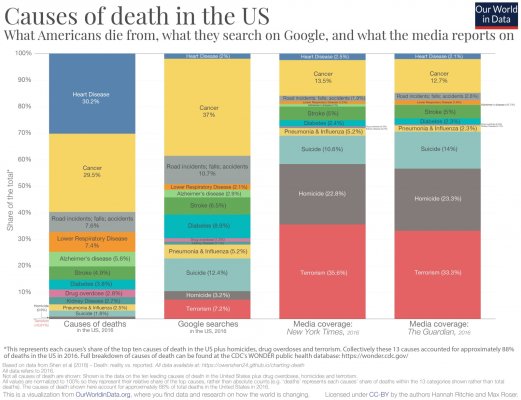An interesting study comparing what we die from vs. what we read about and search for.
Does the news reflect what we die from?

Does the news reflect what we die from?
The included table shows the differences graphically (top ten causes of death):What's interesting is that what Americans search on Google is a much closer reflection of what kills us than what is presented in the media.

